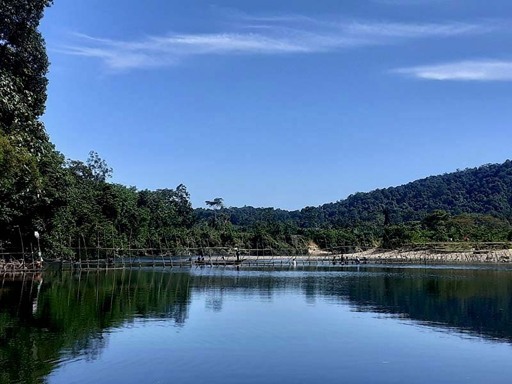Researchers have recently found that sacred waters protected by Indigenous traditions are key to fish conservation in Indonesia, yet they remain largely unrecognized and excluded from national frameworks for biodiversity and cultural heritage preservation. In Indonesia’s vast archipelagic region, where traditional practices often intersect with biodiversity conservation efforts, many bodies of water have been highly revered as inhabited by sacred spirits or deities, making them de facto protected areas for native fish species, according to a peer-reviewed study published in June in the journal Aquatic Conservation: Marine and Freshwater Ecosystems. However, the paper’s researchers said the relevance of sacred natural sites for fish conservation has been overlooked by conservation authorities even though many customary practices were still being observed across the country. “Our motivation for addressing this topic in a scientific article stems from the widespread lack of public awareness about aquatic environmental conservation,” Darmawan Setia Budi, aquaculture lecturer at Airlangga University who is the lead author of the paper, told Mongabay in an email. “We observed that many people still pollute rivers and other water bodies, and engage in overfishing using environmentally harmful methods,” he added. A sacred river in the forest. Image by Aseanty Pahlevi/Mongabay Indonesia. The study used a qualitative, ethnobiological review to examine the cultural role of sacred waters in Indonesian freshwater fish conservation, drawing on literature, community narratives, and case studies. The authors highlighted in the paper traditional practices’ relevance to modern ecological and community resilience efforts, grounding them in both academic and cultural perspectives.…This article was originally published on Mongabay
From Conservation news via this RSS feed


